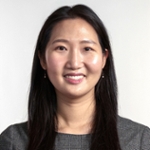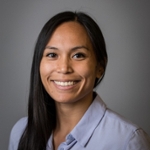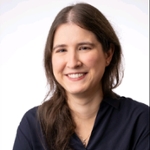Title: Associate Full Stack Engineer
Company: Amazon Web Services
Industry: Tech
My career goal is to become a Principal Software Engineer and I'm currently working as Senior Associate Full Stack Engineer which is one step towards reaching my goals. My strategy in college was to do as many Computer Science related courses as possible, which covered different areas of the subject like computer science theory, web development, software development, algorithms and data structures, networking, etc. It gave me more insight into the subject and helped me to choose a path that I liked the most.
Never underestimate an interview, one small question could be the decision making point.
For the interview process, I would say it’s most important is to prepare before every interview. I had some experiences where I could have passed the interview process, if had I have prepared for it. Never underestimate an interview even if you feel like you know everything, one very small question could be the decision making point. For interviews at junior levels, the most important piece of advice would be to go over the actual languages and tools mentioned in the job listing. Make sure to do your research about what questions the company has asked in the last couple months. This might be through asking people that work in the company through LinkedIn or searching the discussion sections on sites like glassdoor.com or leetcode.com. Often many post the questions they have been asked for specific companies.
The most recent experience I had, which completely changed my way of looking at interviews, was when I passed Amazon's interview for the Software Developer position. I always thought that I'm not among the brightest and smartest people that works for FAANG companies, but having worked there, I can say that it is achievable. You just need to be consistent. It took me around 6-8 months after I graduated to get my first tech job but after I got that position the growth is exponential.
The most important soft skill would be your confidence in selling yourself.
At the end of the day, an interview is just like a seller trying to sell something valuable to a customer. You need to have confidence in your skill set and be able to deliver the correct message to the interviewer. The key is communication.
I think the most common challenge for new grads or students is the lack of experience by projects. Yes, courses do provide some material to understand and learn the concepts, but you need to do some hard work and build some working projects to show your team efforts. These projects can really lighten up the resumes as a student's resume is often empty due to lack of work experience.
Once you start working on real world projects many new doors are going to open.
Getting your first job is the hardest part. But once you crack the first phase you go from studying from lectures/course materials to actually learning from a professional setting. It opens new gates to how you think and approach problems, and then you start to understand how things actually work together. We often learn new programming languages and tools separately, but once you start working on real world projects, it opens up the connections.
For current students, I recommend to go through Langara’s Computer Science courses list and try to pick some good ones that are in line with your interests. For instance, if you are more aligned with web development, then Langara has courses like Web Development 1/2 and Full Stack Development 1/2. Also, collaborate with more students and try to build new projects that you can show on your resume and Github. After graduating I did not have any projects, so I started building projects which took quite a bit of time to get my resume to a level where I felt confident. In this sense, I would have definitely collaborated more with some friends to create some projects to show in my resume, especially during the last few semesters.
This story was written in the Spring 2023 semester. See Gursharan’s LinkedIn for updates on his career journey.








